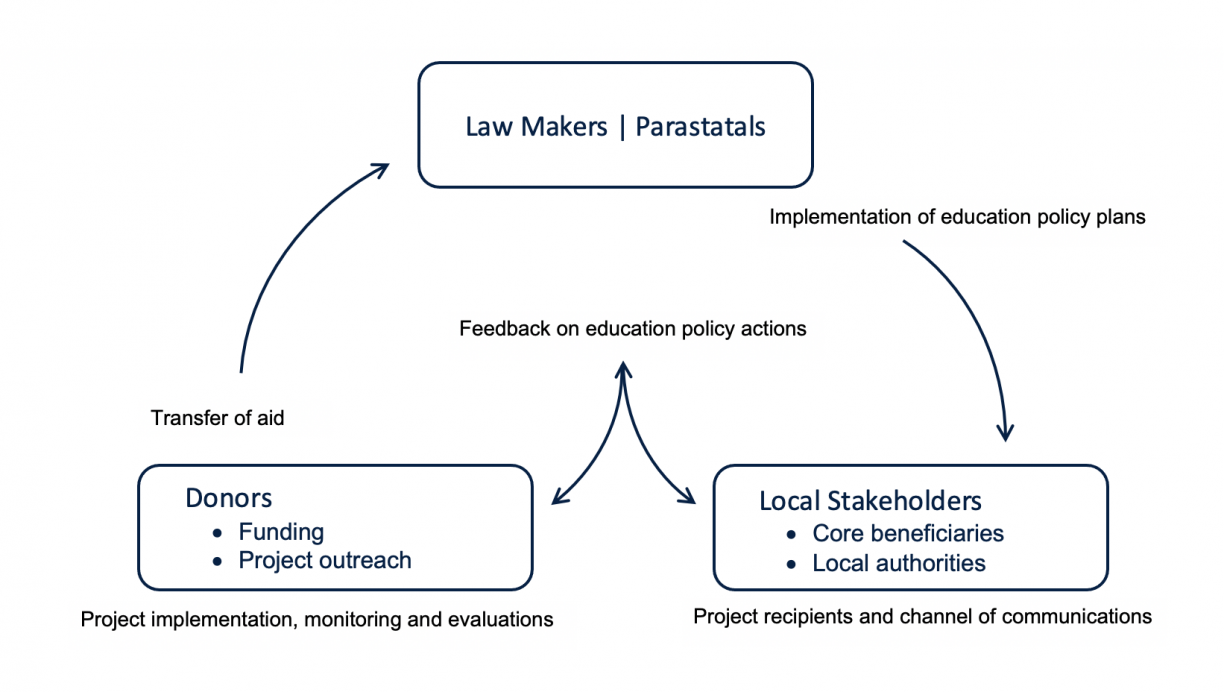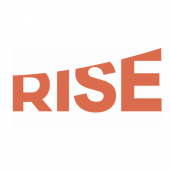Blog
Delivering Basic Education Amidst Information Asymmetry, Resource Constraints, and Sticky Social Norms in Nigeria
Beyond the relationships that empirical papers try to establish between proximate determinants of education and learning outcomes, little is known about the mechanisms through which developing countries’ education systems transform inputs into learning outcomes. The Research on Improving Systems of Education (RISE) Nigeria team seeks to explore how these interactions occur and to influence both the investment in education inputs as well as learning outcomes. With 13.2 million out-of-school children and a 19 percent literacy rate among primary school completers age 18 to 37 (WBG 2018), Nigeria is an important case study for research on the political economy of basic education.
Several actors are involved in Nigeria’s basic education system. On the supply side, public institutions and agents are responsible for education policy and service delivery. The demand side includes students, parents and communities. The interactions between these actors—which are governed by resource constraints, social attitudes and norms, individual aspirations and incentives—produce not only the allocation of effort and resources but also the observed learning outcomes.
Figure 1: Political Economy Chart Flow in Nigeria

Source: RISE-Nigeria Country Research Team (CRT) 2019
These actors can be further categorised under Donors, Government and Local Stakeholders. There is heterogeneity among local stakeholders, notably along income lines; wealthier families can exit the public education system in favour of private schools and are thus less reliant on education policy. These stakeholders’ engagement in the education sector remain interwoven, as each category of actors is indispensable to the others.
Table 1: Recurrent Actors in the Basic Education System of Nigeria
| Donors | Government | Local Stakeholders |
|---|---|---|
|
|
|
Source: RISE-Nigeria Country Research Team (CRT) 2019
Generally, there is a disconnect between users of public services and the service providers in Nigeria. This dynamic may be due to the legacy of military rule, whose traits have lingered on till this day. Information asymmetry on the quality of education arises due to limited interaction among politicians, education policy makers, bureaucrats, practitioners, and the served public. This leads to inefficient resource allocation and poor outcomes. One way of addressing the disconnect between education stakeholders is through a process that generates a constructive dialogue, commitment to a set of shared targets and actions for achieving desired outcomes.
Such a process that bridges the supply and demand side of education is absent in many Nigerian states. Influenced by the different experiences of two Nigerian states (Ekiti and Oyo) in pursuing education reforms, the social contract component of the RISE Nigeria project seeks to study the political economy of education reform. Particularly, the study investigates how a process that brings together politicians and other education stakeholders to deliberate on education issues influences attitudes, behaviour, investment, and outcomes in education. The vehicle for formalizing this commitment is the social contract, which serves as a tool for stakeholders to seek accountability from each other.
The RISE Nigeria CRT is exogenously facilitating this process across five Nigerian states: Enugu, Oyo, Jigawa, Delta and Bauchi. The first phase of the study took advantage of the 2019 general elections cycle to initiate this process by conducting Education Awareness Workshops (EAWs) in select treatment states1 . EAWs provided a platform for engagement and information exchange between stakeholders in the education sector and gubernatorial candidates. In addition, the EAWs provided a forum for research and information about education in the state to filter into the political process.
While each state has its unique challenges and policy directions, the issues identified and discussed by stakeholders touched on access, quality, finance, and equity. In the northern states, conservative social norms, insurgency, and severe school resource constraints (infrastructure and human) limit access to education, especially for girls. Stakeholders were enthusiastic about debating these issues and proffering context-appropriate solutions. Financing education and the debate about the role of private education featured prominently in the southern states and Kano. These initial engagements with key stakeholders indicated a willingness of actors to participate in discussions and paved the way for data collection leading up to the Political Economy Summits.
To prepare for each Summit, a data collection team researches the condition of schools in the Local Government Areas (LGAs) under consideration and administers tests to students to determine the current learning levels. The data collection team also carries out a power mapping activity to determine Summit attendance, and surveys stakeholders about policy preferences and hypothetical budget decisions.
To date, data collection activities have taken place in six Local Government Areas (LGAs) in Enugu and six LGAs in Oyo. Surveyed stakeholders considered the most pressing issues to be access to education, the quality of education, and the financial management of the education sector. Respondents also highlighted the need to improve infrastructure and to ensure professional development of teachers. The general conditions of the 60 schools surveyed in the three treated LGAs are quite concerning, particularly in terms of Water Sanitation and Hygiene (WASH) facilities, and ventilation. The majority of surveyed classrooms had inadequate access to power supply. Finally, the standardized test results show a low level of performance of pupils in primary schools, with girls performing slightly higher than boys, on average, in four core subject areas.
At the Summits themselves, education stakeholders convene and agree upon social contracts. This study will examine the efficacy of the social contract process in influencing education systems change, as described by school governance and outcome improvements. The study gets at the heart of the political economy of education reform in Nigeria, identifying ways through which political economy considerations might be important for the successful implementation of systemic reforms. This project is ongoing. We look forward to the results and to advancing knowledge about how education systems can be improved.
Footnotes
- 1Jigawa, Kano, and Rivers states had EAWs but were subsequently dropped from the study. Jigawa, Delta and Bauchi states were subsequently added on the basis of stakeholder buy-in.
RISE blog posts and podcasts reflect the views of the authors and do not necessarily represent the views of the organisation or our funders.

